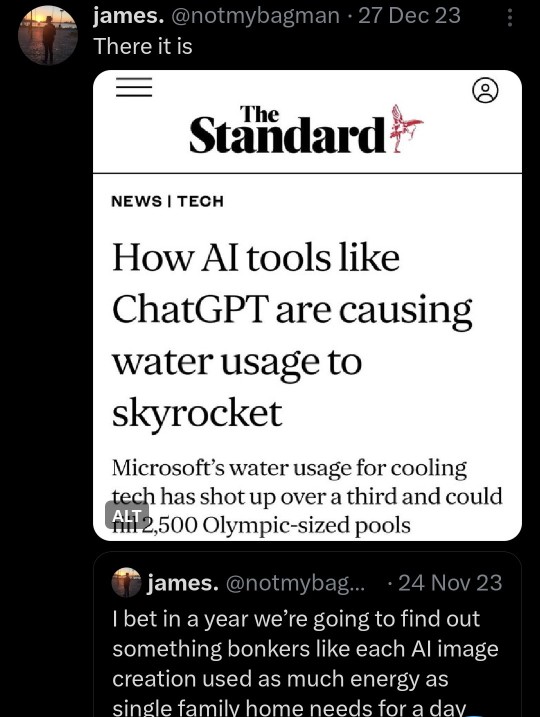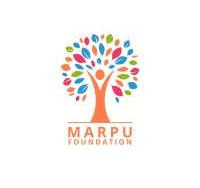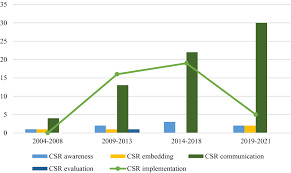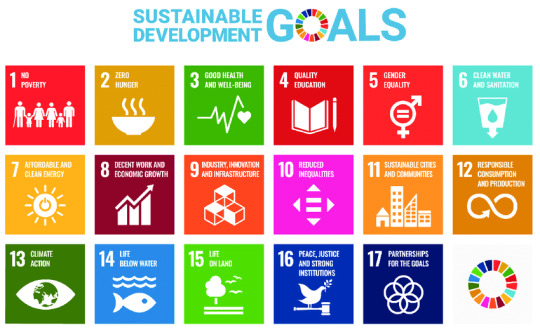#Sustainable Development Goals
Explore tagged Tumblr posts
Text
Research in degrowth is interested in a “socially sustainable and equitable reduction (and eventually stabilisation) of society's throughput” while ensuring wellbeing. Currently postgrowth/degrowth scenarios, while politically complicated, are humanity’s best bet to avoiding a devastating 1.7 degrees of warming by 2030, as predicted by the latest IPCC report. This is because “degrowth scenarios minimize many key risks for feasibility and sustainability compared to technology-driven pathways, such as the reliance on high energy-GDP decoupling, large-scale carbon dioxide removal and large-scale and high-speed renewable energy transformation”. Importantly, the focus of degrowth lies in limiting the economic expansion of the Global North to give people in the Global South the chance to meet their material needs for wellbeing within the bounds of the planet. Degrowth is thus about reorienting the economy towards societal welfare – this might even entail nominal economic growth in the Global South in the short-term, as material and energy expansion is needed to provide for human needs. However, the key point is limiting economic expansion beyond what is needed for societal welfare to avoid ecological collapse – starting with the affluent North. Degrowth in the Global North is needed most of all for the “buy-in” of the Global South to long-term social-ecological sustainability. Current lifestyles in the Global North are deeply unsustainable and unjust. Replicating the old pattern of industrial development of the Global North in the Global South will place all (both Global North and Global South) outside the safe operating space for humanity with planetary boundaries.
From “Decent work and economic growth” to “Sustainable work and economic degrowth”: a new framework for SDG 8
#degrowth#sustainability#Sustainable Development Goals#climate change#this was one massive paragraph so I broke it up for easier reading
73 notes
·
View notes
Text
Underconsumption, minimalism, budgeting... It's all the same!
#sustainable development goals#underconsumption#minimalism#budgeting#financial security#living with less#prosperity
12 notes
·
View notes
Text

WE are the carbon they want to reduce.
#sustainable development goals#Agenda 2030#depopulation#new world order#world economic forum#The Fourth Industrial Revolution#climate scam#climate change
3 notes
·
View notes
Text
In 2022, 2.2 billion people didn't have access to safely managed drinking water (source). You'd think doing something about that would be our priority, but no.
(Btw, here's the full article by The Standard shown in the screenshot. It's worth checking out for more details, including a few measures that tech companies could or are planning to take to tackle the problem.)

#another reason why ai use needs to be properly regulated#people need that water more than tech companies#artificial intelligence#ai issues#social justice#environment#sustainable development goals#sdg6#drinking water
121K notes
·
View notes
Text
Hong Kong launches its AI-Powered Green Education Initiative! 🌱 On May 19, the Fringe Club hosted educators, students, and industry leaders to blend AI and sustainability for training future eco-innovators. Discover how GEEP shapes green entrepreneurs ahead of #COP30 🌍 #AI #Sustainability #Climate
0 notes
Text
"@UNEP supports young people worldwide in achieving the Sustainable Development Goals and living in harmony with nature.
Explore youth-focused initiatives across regions to shape a greener, more sustainable future." https://www.unep.org/topics/youth-education-and-environment/our-work-regions
0 notes
Text
World Inspiring Network Secures Bloomberg Youth Climate Action Fund Again
The World Inspiring Network, a nonprofit organization based in Accra, has once again secured a grant under Phase II of the Bloomberg Youth Climate Action Fund to advance its environmental initiatives. This achievement makes the organization the only one in Accra among Kumasi and other cities participating in the fund to have won the award twice, both in Phase I and Phase II. During Phase I,…
#Accra Metropolitan Assembly#Bloomberg Youth Climate Action Fund#Carbon Emission Reduction#Charcoal Briquettes#Circular Economy#Clean Energy#climate change#Climate Innovation#Coconut Waste Recycling#Community Engagement#EcoFlames Initiative#Environmental Sustainability#Ghana Climate Action#green action project#Green Action Summit#Renewable Energy#Sustainable Development Goals#Waste-to-Energy#world inspiring network#youth empowerment#Youth-Led Projects
0 notes
Text
National Security Threat: The United Nations Sustainable Development Goals are behind the High Density Housing in Your Community
National Security Threat: The United Nations Sustainable Development Goals are behind the High Density Housing in Your Community Check out this short video to find out how the UN plans to steal our land and force people to live in tiny spaces (High Density Housing) so they can control us in 15 minute cities and destroy families. Do you see high density housing gobbling up your community? Time…
#globalism in our country#high density housing#national security threat#sustainable development goals#tree of liberty society#united nations
1 note
·
View note
Text
Happy World Autism Awareness Day 2025
Happy World Autism Awareness Day, 2 April, 2025. 2025 Theme: "Advancing Neurodiversity and the UN Sustainable Development Goals (SDGs)". This theme highlights the intersection between neurodiversity and global sustainability efforts, showcasing how inclusive policies and practices can drive positive change for autistic individuals worldwide and contribute to the achievement of the SDGs.

This year’s theme explores the role of neurodiversity in shaping policies that promote accessibility, equality, and innovation across multiple sectors. Discussions focus on inclusive healthcare, quality education, workplace accessibility, reducing inequalities, and designing autism-friendly cities and communities.
By fostering dialogue and collaboration across multiple sectors, World Autism Awareness Day 2025 will reinforce the need for sustained efforts to eliminate barriers, promote inclusive policies, and recognize the contributions of autistic individuals to society and the achievement of the SDGs.
#sofiaflorina#ソフィアフロリナ#world autism awareness day#world autism day#autism day#autism awareness day#autism awareness week#autism awareness month#autism awareness#autism acceptance#autism support#autism life#autism advocate#autistic#raise awareness#raising awareness#autism care#autism friendly#sustainable development#sustainable development goals#sdg#sdgs#united nations#autistic things#autistic positivity#autism#neurodivergent#being autistic#autists#autist
0 notes
Text
ISDM DataSights - All for Data, Data for All
ISDM DataSights, in collaboration with Capgemini, offers grassroots organisations free access to reliable data for driving SDG impact.
#ISDM DataSights#SDG#social sector#social impact#Sustainable Development Goals#socialsector#development management#socialchange
0 notes
Text
#agroforestry#Biodiversity#Carbon Footprints#carbon sequestration#Climate Change#CSR#Green infrastructure#Reforestation#SDG#Sustainable agriculture#Sustainable Development Goals#Trees#UN#United Nations
0 notes
Text
Equal Access to Clean Energy: A Shared Responsibility for a Sustainable Future
If gas imports to Nepal are disrupted for even a few days, most households will face immediate challenges. The importance of alternative measures starts with having a backup plan. We still vividly remember the hardships of the 2072 blockade when Nepalese people resorted to collective cooking by gathering firewood from forests. Even short-term disruptions in petroleum transportation can…
#Alternative Energy Center#imported petroleum products#Sustainable Development Goals#sustainable solutions
0 notes
Text
SDGs and the Role of Education in Creating a Brighter Future
Of all the Sustainable Development Goals (SDGs), education is the most vital component for sustainable development. Education is not just a goal in itself but the foundation for achieving all 17 SDGs, ensuring that no one is left behind. By addressing challenges like poverty, hunger, gender inequality, and climate change, education equips individuals with the knowledge, skills, and values needed to create a sustainable future.

The Importance of Education in Sustainable Development
Quality Education focuses on ensuring inclusive and equitable quality education and promoting lifelong learning opportunities for all by 2030. Education directly contributes to eradicating poverty, promoting gender equality, and fostering economic growth, making it a cornerstone of sustainable development. Education builds the foundation for a skilled workforce, enabling economic progress and technological innovation. It instills critical thinking and problem-solving skills, preparing individuals to address global challenges. Education for Sustainable Development (ESD) goes beyond traditional learning to integrate sustainability principles, encouraging learners to adopt behaviors and actions that promote environmental and social well-being.
India’s Commitment to SDG 4
As a signatory to the SDGs, India is committed to achieving quality education for all by 2030. Recognizing the transformative potential of education, the Government of India has implemented various policies and initiatives to ensure access to education for every child. Programs like the Sarva Shiksha Abhiyan (SSA) and the Right to Education Act (RTE) have made significant strides in universalizing primary education and improving enrollment rates. These initiatives aim to provide free and compulsory education to all children aged 6 to 14 years. Despite progress, challenges remain in ensuring quality learning outcomes, equitable access, and bridging the digital divide.
Steps Taken Under SDG Education
To align with SDG education initiatives, India has undertaken several measures to improve the quality and inclusivity of education:
National Education Policy (NEP) 2020:The NEP envisions transforming India into a global knowledge hub by emphasizing critical thinking, innovation, and research. It promotes digital literacy, vocational training, and holistic development to prepare students for a dynamic world.
Samagra Shiksha Abhiyan:This integrated program focuses on enhancing the quality of school education, from pre-primary to secondary levels. It emphasizes gender equity, inclusive education, and digital learning.
Mid-Day Meal Scheme:By addressing malnutrition, this program ensures that children from underprivileged backgrounds attend school regularly, fostering better learning outcomes.
Digital Education Initiatives:Programs like Diksha and e-Pathshala aim to bridge the digital divide by providing online resources and tools for students and teachers, especially in remote areas.
Beti Bachao, Beti Padhao:This initiative addresses gender disparity in education, encouraging families to educate girls and promote gender equality.
The Role of Education in Addressing Global Challenges
Education is instrumental in addressing the most pressing global challenges and achieving sustainable development:
Breaking the Cycle of Poverty:Access to quality education is a proven strategy for reducing poverty. By equipping individuals with skills for employment, education creates pathways for financial independence and economic stability.
Promoting Gender Equality:Education empowers women and girls, enabling them to participate in decision-making processes and contribute to social and economic progress. Achieving gender parity in education is crucial for building an equitable society.
Driving Innovation:A robust education system fosters creativity and innovation. India’s growing emphasis on research and development in schools and universities is a testament to the transformative power of education.
Addressing Climate Change:Education for Sustainable Development raises awareness about environmental issues and promotes sustainable practices. It equips learners with the knowledge to combat climate change and adopt eco-friendly lifestyles.
Fostering Global Understanding:Education bridges cultural divides by promoting tolerance, empathy, and collaboration. It nurtures global citizens who are equipped to work collectively for a sustainable future.
Conclusion
Education is the bedrock of sustainable development and a brighter future. By aligning with SDG 4 and implementing impactful SDG education initiatives, India can unlock the potential of its vast youth population. The journey toward achieving quality education in India is fraught with challenges, but with concerted efforts and innovative solutions, the vision of an inclusive, equitable, and sustainable education system can become a reality. Let us commit to the transformative power of education to shape a sustainable and prosperous world for generations to come.
At 2030kabharat, we are dedicated to fulfilling SDG Goal 4 (Quality Education) by implementing innovative strategies to enhance learning in underprivileged communities. Through our Teacher Training Programs, we have trained over 500 teachers across Madhya Pradesh, empowering them with modern teaching methods and digital tools.
Our efforts in digital education have reached over 20,000 students, ensuring access to online learning resources and bridging the digital divide in remote areas. We believe that education is the key to breaking the cycle of poverty and creating a sustainable future.
Join us in our mission to make quality education accessible to every child and contribute to building a stronger, more inclusive India. Together, let’s achieve a brighter, more sustainable future by 2030. Original Source: bit.ly/sdgsinindia
0 notes
Text
The Guide to Effective CSR Collaboration with Marpu Foundation
THE GUIDE TO EFFECTIVE CSR COLLABORATION
WITH MARPU FOUNDATION

In a world grappling with global warming, devastating earthquakes, and relentless climate change, a beacon of hope emerges: the powerful alliance between Marpu Foundation and Corporations. These unlikely partners are joining forces to engineer positive change, breathing life back into a planet teetering on the brink. Through strategic planning and bold execution, they are transforming lives and rewriting the future of our Earth.
WHAT IS CSR AND WHY IT IS NEEDED:
Corporate Social Responsibility (CSR) is more than just philanthropy. It's a powerful partnership between businesses and NGOs, a commitment to ethical and sustainable practices. By embracing CSR, corporations can transcend profit-driven goals. They can become agents of positive change, combating poverty, eradicating hunger, and safeguarding our planet. This isn't just about doing good; it's about crafting a future where businesses thrive alongside a healthy society and a thriving environment

IMPLEMENTATION AND GOALS:
CSR champions diversity within the workplace, tackles pressing issues like plastic pollution, and empowers underprivileged students through education. By driving innovation of CSR with the Marpu foundation catalyze a global shift towards a more conscious and equitable world. Aligning CSR initiatives with the specific goals of Marpu Foundation is crucial for maximizing impact. Through smart, collaborative efforts, we can achieve measurable outcomes and inspire positive change across society. CSR collaborations with the Marpu Foundation can focus on education, healthcare, environmental sustainability, and community development. This includes sponsoring scholarships, improving educational infrastructure, and developing employability skills. Healthcare initiatives can focus on access to quality care, hygiene, and mental health support. Environmental initiatives may involve conservation, sustainable agriculture, and reducing environmental impact. Community development can empower women, support rural areas, and improve disaster preparedness. Employee volunteering, including skill-based contributions, is crucial. Successful implementation requires aligning with the Marpu Foundation's mission, measuring impact, building long-term partnerships, and effectively communicating successes.

BUILDING RELATIONSHIP WITH MARPU FOUNDATION:
Successful CSR- Marpu foundation collaborations thrive on transparent and honest dialogue. Regular communication fosters a deep understanding of shared goals and challenges. Open and frequent meetings allow for dynamic adjustments and course corrections. Ultimately, a foundation of mutual respect and trust is paramount. This fosters a collaborative spirit where both partners feel valued and empowered to achieve impactful outcomes.
LEVERAGING THE EVALUATION AND MONITORING:
Corporations should strategically leverage their unique skills and resources to complement the Marpu Foundation. Actively engaging employees in volunteering and decision-making processes fosters a sense of ownership. Encourage joint innovation to develop creative and impactful solutions. For long-term sustainability, plan for the future and invest in the Marpu foundation. A well-defined exit strategy ensures that Marpu foundation can continue the work independently. Finally, celebrate successes transparently with all stakeholders. Recognize the contributions of both partners and leverage the collaboration for positive public relations and brand enhancement.
CONCLUSION:
The success of our partnership between CSR and Marpu Foundation highlights the importance of strong collaborations between businesses and NGOs. By working together, we have achieved healthy well being for more than 100 families and built a stronger community. This successful model can serve as a blueprint for future partnerships that address critical social and environmental issues.
#sustainable development goals#csr#ngo partnerships#corporate responsibility#social impact#challenges#investing for future growth#decade of action#partners for positive change#together for SDGs#digital transformation#marpu foundation
1 note
·
View note
Text
Path to the Future: the 17 UN Sustainable Development Goals

0 notes
Text

We must destroy the planet in order to save it.
0 notes